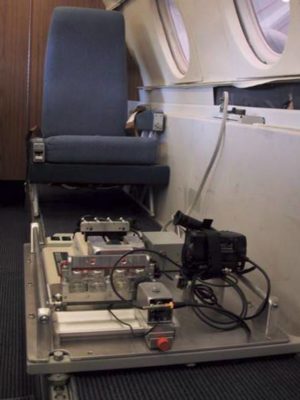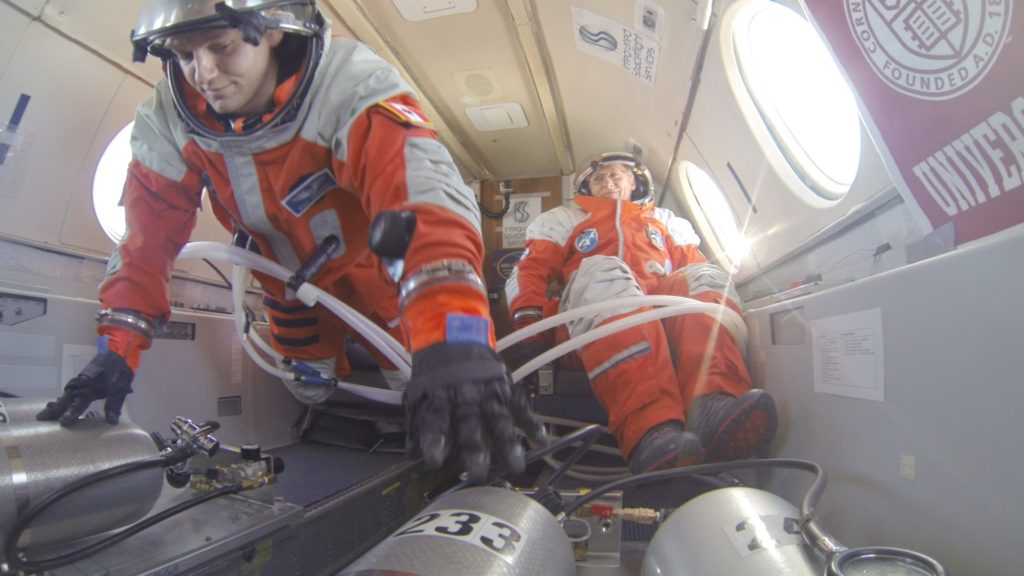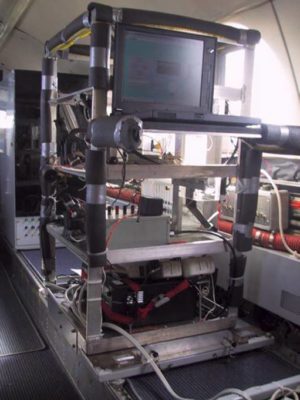Online Payload Reference Document (PRD) Submission
FAA Certification of science and engineering payloads
PhD-level assistance in payload certification and integration
Internal Review Board (IRB) and aerospace medical services as needed
Microgravity Flight Operations and Documentation
The Falcon 20 Reduced Gravity Laboratory
Integrated Spaceflight Services has experience integrating a wide range of payloads, specializing in human research. Our pilots have 25 years of microgravity experience with demonstrated quality within 20 milli-g's with flights dedicated to your experiment!



We Provide:
Falcon-20 Reduced Gravity Aircraft Capabilities:
Cabin volume 14.2 cubic meters (5.0 m x 1.5 m x 1.5 m (LWH)
Flights support up to five researchers
Each flight supports up to 32 parabolas
Each parabola has at least 15 seconds of 0.02 g or less
G-levels may be customized; experiment may be adjusted on request
Aircraft performance data is sampled and recorded at 32 Hz
Aircraft position: altitude, pitch, yaw
Aircraft movement: airspeed, accelerations
Cabin environment: temperature, pressure
16 channels available to record payload data synchronous with the aircraft data

The Falcon 20's rigid airframe enables superior microgravity quality. The aircraft can support a test team of five personnel, or the equivalent in equipment.
Plan your Microgravity Campaign
Scheduling a Campaign: We typically arrange reduced gravity flight research campaigns each September and October, though we can accommodate other times if necessary.
Costs: Integrated Spaceflight Services offers very competitive rates and creative ways to manage costs. Because each experiment has unique integration requirements, cost estimates are provided upon submission of the Payload Reference Document.
Location: Campaigns are conducted in Ottawa International Airport in Ottawa, Ontario. In special cases, campaigns may be arranged elsewhere in Canada or the United States.
